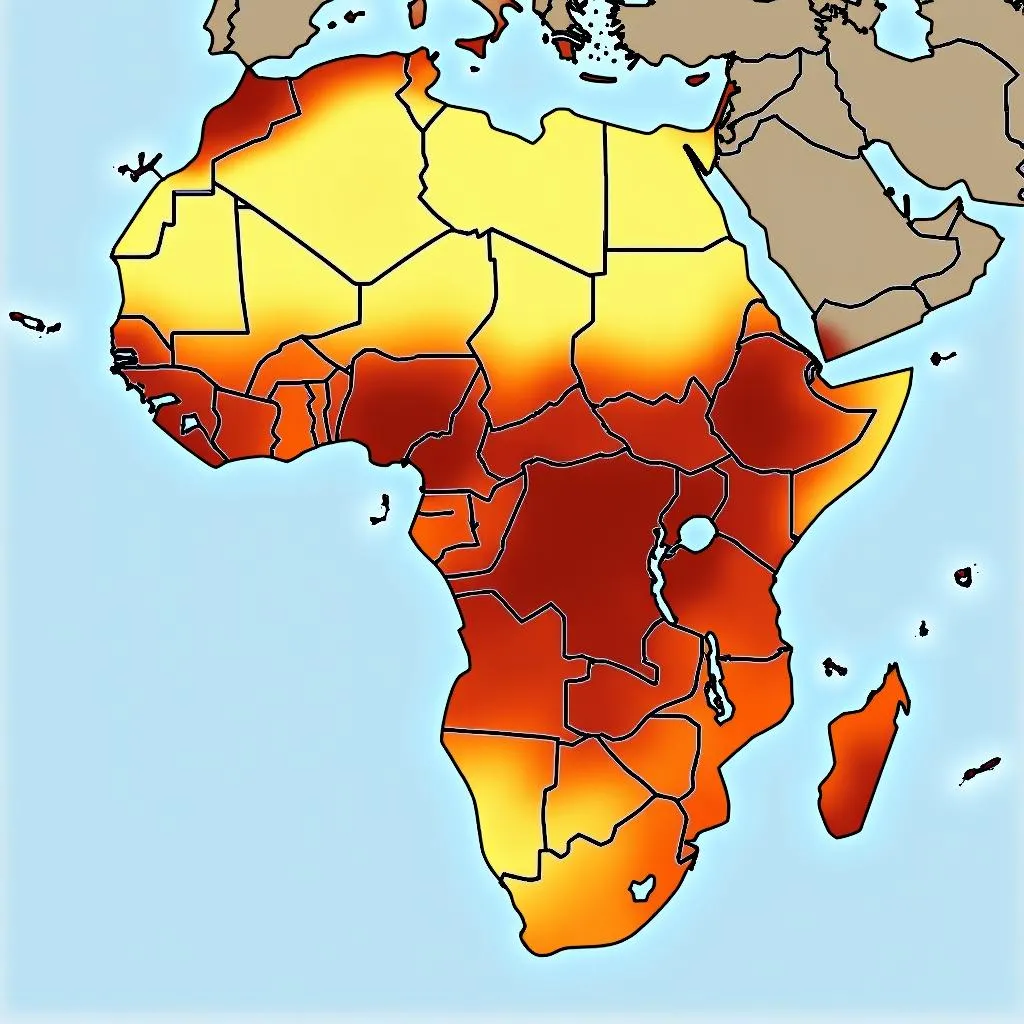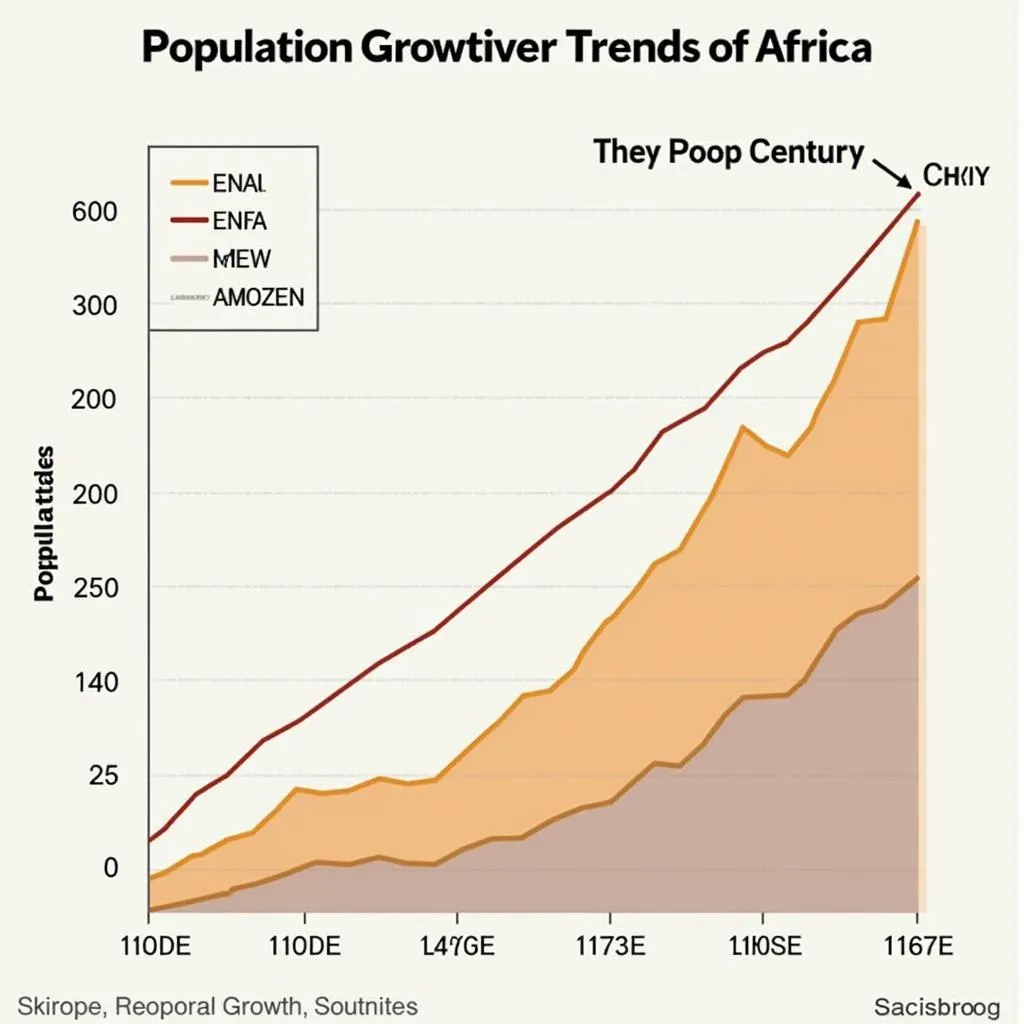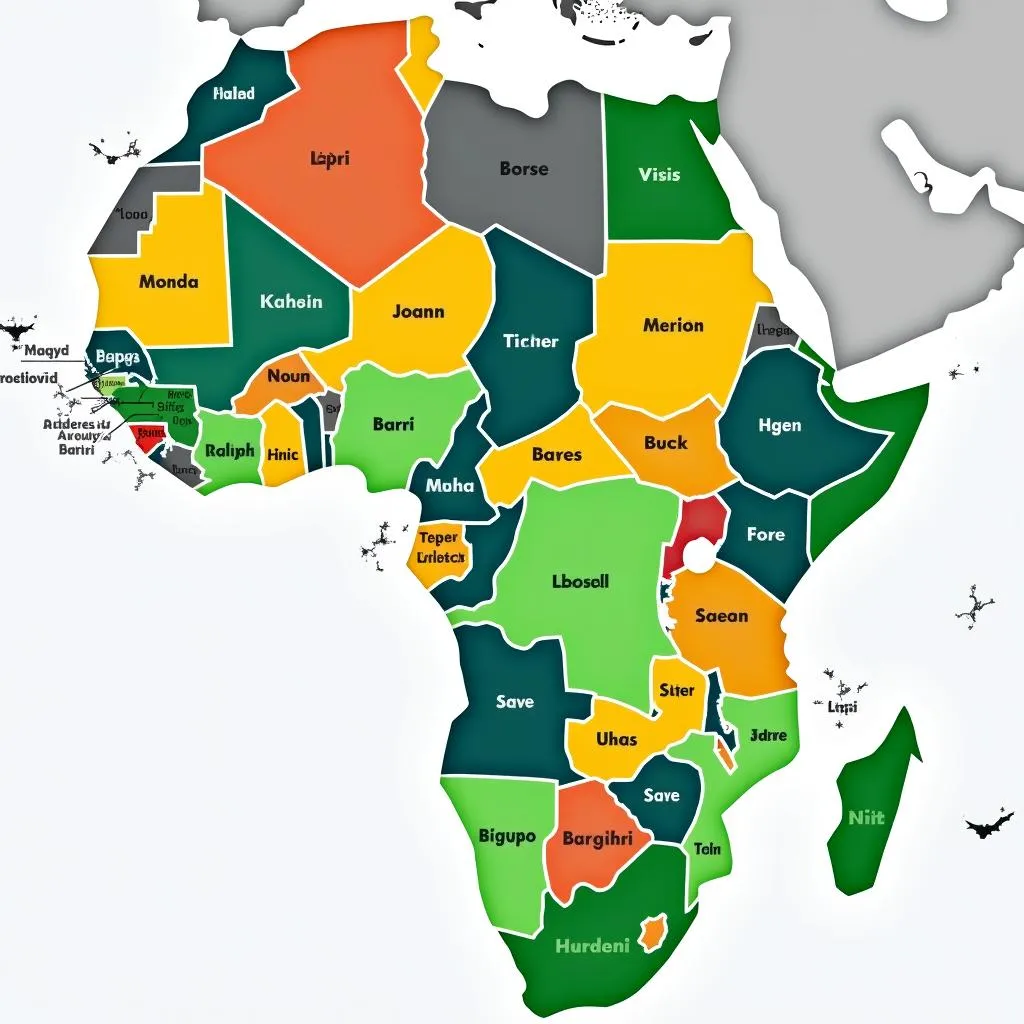Africa is a continent of incredible diversity, boasting a rich tapestry of cultures, languages, and landscapes. Its population is equally diverse, with a wide range of population sizes across its 54 countries. This article will delve into the fascinating world of African demographics, exploring the most populous nations on the continent according to data compiled by Wikipedia.
Top 10 Most Populous African Countries
To understand the population dynamics of Africa, it’s essential to start with the most populous countries. Here are the top 10 African nations by population as of 2023, according to Wikipedia:
- Nigeria: With an estimated population of over 214 million people, Nigeria is the most populous country in Africa. Its large population is attributed to a high birth rate and a young demographic.
- Ethiopia: Coming in second, Ethiopia has a population exceeding 117 million. This East African nation is known for its ancient history and vibrant culture.
- Egypt: With a population of over 105 million, Egypt is the third most populous African country. Its population is concentrated in the fertile Nile Valley.
- Democratic Republic of the Congo: This Central African nation has a population exceeding 95 million, driven by high birth rates and a large rural population.
- South Africa: With a population surpassing 60 million, South Africa is the fifth most populous African country. Its diverse population reflects a complex history, including colonial influences and a significant migrant community.
- Sudan: Sudan has a population exceeding 45 million, with a majority of its population residing in the north.
- Algeria: Algeria has a population exceeding 44 million, concentrated along the Mediterranean coast.
- Tanzania: With a population surpassing 62 million, Tanzania is known for its diverse landscapes and wildlife.
- Kenya: Kenya’s population exceeds 55 million, with a majority residing in the central and eastern parts of the country.
- Uganda: Uganda has a population exceeding 47 million, distributed across its diverse landscapes, including lush rainforests and savannas.
Factors Influencing Population Growth in African Countries
Several factors contribute to the population growth patterns observed in African countries. These include:
- High birth rates: Many African countries experience high birth rates, contributing to their overall population growth.
- Improved healthcare: Advancements in healthcare have led to increased life expectancy and reduced mortality rates, contributing to population growth.
- Urbanization: Migration from rural areas to urban centers is also a significant factor, contributing to population density in cities.
- Economic development: As economies grow, populations often expand due to improved living conditions and access to resources.
- Immigration: Some African countries attract migrants from neighboring countries, contributing to their population growth.
The Impact of Population Growth on African Development
Population growth in Africa presents both opportunities and challenges. On one hand, a large population can translate into a larger workforce, driving economic growth. On the other hand, it can put strain on resources, infrastructure, and social services, leading to challenges in achieving sustainable development.
Population Growth and Sustainable Development
Balancing population growth with sustainable development is a crucial concern for African countries. This involves strategies that address the following:
- Family planning and reproductive health: Providing access to family planning services and education can help regulate birth rates.
- Investing in education and healthcare: Enhancing human capital through education and healthcare can lead to economic growth and improved living standards.
- Promoting sustainable agriculture and resource management: Ensuring food security and protecting natural resources are essential for long-term development.
- Urban planning and infrastructure development: Planning for urban growth and investing in infrastructure can help manage population density and improve living conditions.
Conclusion
Africa’s population is a dynamic and evolving force. Understanding the factors influencing population growth and its impact on development is essential for creating a sustainable future for the continent. By addressing the challenges and leveraging the opportunities associated with population growth, Africa can achieve lasting progress and prosperity.
FAQs
1. What is the total population of Africa?
The total population of Africa is estimated to be over 1.4 billion people.
2. Which African country has the lowest population?
The least populous African country is Seychelles, with a population of less than 100,000 people.
3. What is the population density of Africa?
The population density of Africa is around 43 people per square kilometer.
4. What are the main ethnic groups in Africa?
Africa is home to a vast array of ethnic groups, with over 3,000 different languages spoken across the continent. Some of the largest ethnic groups include the Yoruba, Igbo, Hausa, Fulani, and Bantu people.
5. What are the challenges of population growth in Africa?
Population growth in Africa presents challenges such as increased pressure on resources, strain on infrastructure, and potential for social unrest.
6. How can population growth be managed in Africa?
Managing population growth requires a multi-faceted approach that includes family planning, investing in education and healthcare, promoting sustainable development, and improving urban planning.
7. What is the future of population growth in Africa?
The United Nations estimates that Africa’s population is projected to reach 2.5 billion by 2050. This will continue to present challenges and opportunities for the continent.
 African Population Map
African Population Map
 African Population Growth Chart
African Population Growth Chart
 List of African Countries
List of African Countries
For further information or inquiries, please feel free to contact us at +255768904061 or [email protected]. We have a dedicated customer support team available 24/7 to assist you.
Leave a Reply